12 Natural Insect Repellents + Ways to Keep Bugs Away
Nothing ruins a beautiful day outdoors more than irritating insects who treat your skin like an all-you-can-eat buffet. Before you reach for the insect repellent packed with toxins, consider these 12 natural insect repellents and my top tips for keeping bugs away.
This post contains affiliate links. Please read my affiliate disclosure.
Whether it’s moths nibbling your knitwear, ants attacking your pantry or mosquitos gate-crashing your family BBQs, these natural insect repellents will keep the pests away. Best of all, many are super cheap and easy to find in your local garden centre or grocery store.
Traditionally insect repellent sprays contain harmful ingredients such as Deet and Permethrin. Permethrin is toxic to bees and cats, as well as aquatic life. This list will give you 12 other ways to keep the pests away pronto when you’re in a pinch. These natural alternatives are not only safe for the whole family, but safe for the environment too meaning you can enjoy your pest-free time guilt-free.
DEET-Free Natural Infect Repellent
Before I share about my 12 natural insect repellents, be sure to check out the Young Living Insect Repellent. It’s a natural, essential oil-infused alternative to traditional bug repellent that effectively prevents mosquito, flea, and tick bites.
Made with 100% naturally derived, plant-based ingredients, Young Living’s Insect Repellent is proven to repel mosquitoes, ticks, and fleas with 99 percent active ingredients, plus 1% vitamin E to moisturize and condition skin. The gentle formula rubs easily into skin without a greasy or sticky finish and is appropriate for use on children when used as directed. Best of all, it’s formulated without DEET, parabens, fillers, phthalates, petrochemicals, animal-derived ingredients, synthetic preservatives, synthetic fragrances, or synthetic colorants.
You can get the Young Living Insect Repellent in a 6 oz bottle or easy-to-travel 12-pack wipes. Be sure to check out all my summertime product favorites for insect repellent, fun in the sun, and much more! You’ll save 24% off when you spend 100 PV or more on your order.
12 Natural Insect Repellents
Citrus
Citrus is one of the best natural insect repellents for two of the most common kitchen critters – ants and cockroaches. Both HATE citrus so lemon peels are the perfect way to keep them away without spraying toxic chemicals in your home.
To use, scatter lemon peel around target areas such as windowsills, door entrances or any holes where ants and roaches may enter. The peels contain an acidic oil that is toxic to ants and will kill them on contact. Ants know this, so the slightest sniff and they’ll switch route and avoid the area.

Citronella
Citronella is another great natural insect repellent because it’s distinctive scent blocks mosquitoes’ scent receptors. This means whether whether you apply it to the skin or release it into the air, mosquitos struggle to find the food source so they continue to search – avoiding you.
You may see citronella sold in candle form, but it is best to go for the living plant as this will have the strongest smell. Citronella plants are low maintenance grass plants that thrive in sunny gardens.
If you want your garden to be a mosquito free zone, make sure to buy true citronella varieties such as Cybopogon nardus or Citronella winterianus. Your local garden center may stock plants that are ‘citronella scented’, but they will not repel mosquitos as effectively.
Rosemary
While we may love the earthy aroma of rosemary, flies, slugs and mosquitos cannot stand it. It is an ideal natural insect repellent as it’s super cheap and accessible. Best of all, it thrives in containers so you can dot several rosemary plants around your garden, patio or windowsill for maximum mosquito protection.
It also works particularly well when burned. This makes it ideal if you have mosquitos ruining your family BBQ as you can simply throw a sprig or two onto the grill which won’t affect your food but will avoid you being the mosquitos main course.
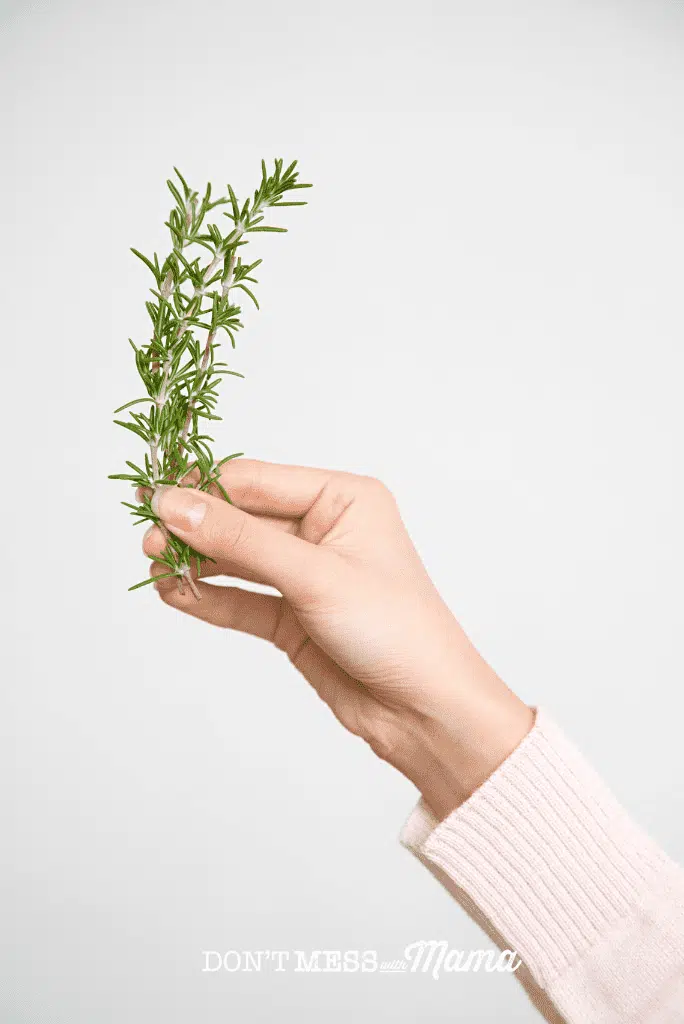
Eucalyptus
Similar to rosemary, the strong scent of eucalyptus can throw mosquitos off your trail. However, while having eucalyptus plants in your garden may keep pests away, a more concentrated amount of the plant’s scent may be required.
In order to achieve this, you will need to release the natural oils within the plant’s leaves. This is super easy to do – either by burning sprigs of the plant as mentioned earlier or crush the leaves to release the oils.
Basil
It’s no secret basil is one of the most pungent herbs which is the main reason it works well as a natural insect repellent. The smell alone deters flies and mosquitos without needing to crush the plant’s leaves or burn them.
Similar to rosemary, it thrives in containers so can be kept on the windowsill, patio or dotted around the garden to keep pests away.
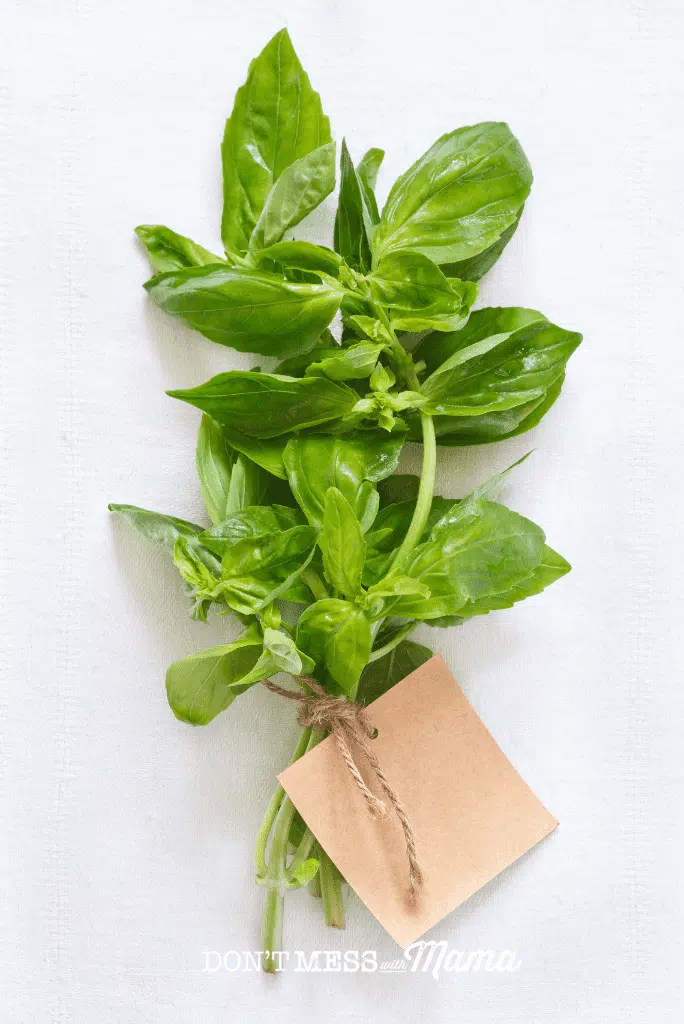
Cedar
Cedar is a must have natural insect repellent as it can be used in so many ways around the home and garden. While to us it appears to just be releasing a pleasant smell, it’s actually emitting aromatic hydrocarbons (phenols) that act as natural pesticides.
Note, you will need fresh, untreated cedar in order for the phenols to be released. If the cedar chips are painted or treated in any way, it will dilute the cedar’s insect repelling powers.
Ways to use cedar include:
- Add cedar chips to any storage boxes to avoid moths nibbling on your knitwear and clothing
- Add to your garden to deter fleas and ticks away from your pets (cedar is harmless to pets)
- For kids’ play areas, use cedar chips to keep the area clear of ants, fleas and mosquitos.
- A sprinkle of cedar chips in your garbage can will not only naturally deodorize but will repel rodents too
Cinnamon
To pests such as mosquitos and ants, cinnamon smells toxic. When they get a scent of it, they immediately want to avoid the area. However it is not only the smell they detest, cinnamon contains eugenol which is a naturally occurring chemical compound that is used in insect repellents. Eugenol can also be found in cloves, nutmeg and basil.
To use cinnamon as a natural insect repellent, lay cinnamon sticks on your window sill to deter ants or use ground cinnamon in the areas you want insect-free.
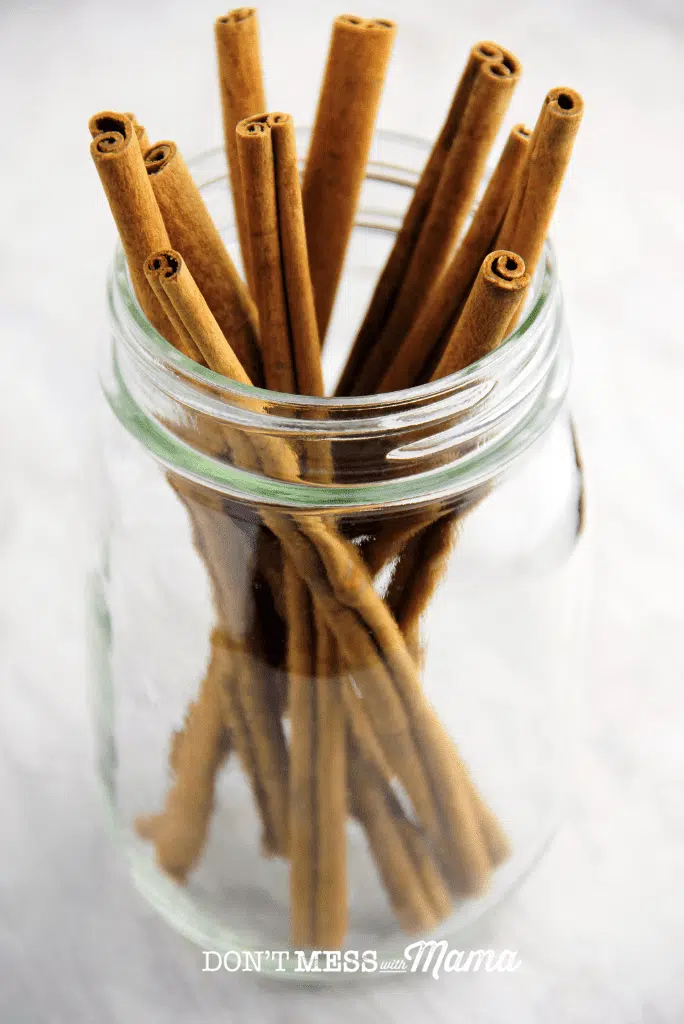
Neem Oil
Neem oil derives from seeds from the neem tree. Despite being a natural insect repellent, it isn’t toxic to people or animals. In fact, it is sometimes used in beauty products such as shampoo, lotions and even toothpaste.
Neem oil contains azadirachtin which interferes with the hormones of certain insects making breeding difficult. It also reduces their ability to eat heightening their hatred for neem oil.
One of the easiest ways to apply neem oil is as a spray. Fill a spray bottle with warm water and 3 teaspoons of neem oil. Then add 1 teaspoon of unscented castile soap. Spray it liberally at dusk around your garden to keep mosquitos away
Diatomaceous Earth
Also known as DE, diatomaceous earth is found naturally in sedimentary rock. It is made from the fossilized remains of single-celled aquatic microorganisms called diatoms. To the human touch, it feels like a super soft powder but when in contact with certain insects it is very abrasive. Once in contact, the insect dies as the DE destroys the insect’s outer layer.
DE will kill fleas, ants, cockroaches, silverfish and crickets. It can be purchased in a variety of grades, so it is recommended to use food-grade DE for your garden and home as this is the safest.
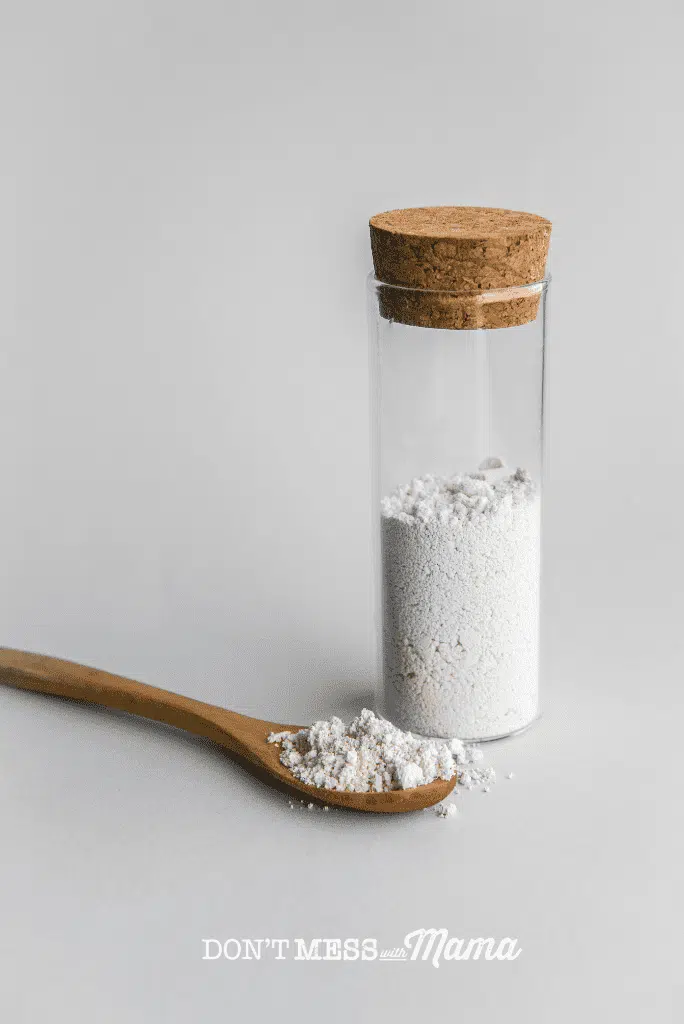
Garlic
Most insects hate garlic due to its confusing sulfur compounds, which mask the smell of their food (and humans) making it a great natural insect repellent. To use, blend 4 garlic cloves, strain then add to 1 gallon of water. Pour it into a spray bottle and shake well.
Spray liberally in areas such as ponds or birdbaths where mosquitos like to breed. Don’t worry if the garlic spray goes on your plants as it will not interfere with their growth. In fact, garlic is an excellent natural pesticide that will keep your plants safe from pests as well as you.
Lavender
To us, lavender’s comforting scent is a natural sleep aid, but it is actually the enemy of pests such as mosquitos, fleas, moths and ticks. This is because lavender contains a non-toxic compound called linalool, which is used in many pest control products.
Both fresh and dry lavender works well as a natural insect repellent. Having the plant in your garden may not be enough to deter pests, but by crushing the flowers a little it will release the natural oils and a stronger scent which will heighten the plant’s effectiveness.
Egg Shells
Talking of keeping your plants safe from pests, egg shells are another great natural insect repellent. Save your egg shells from those tasty breakfast recipes and crush them up before scattering over your patio, flower beds and garden paths. Snails and slugs struggle to slide over egg shells which will force them to avoid the area.

Ways to Keep Bugs at Bay
In addition these natural insect repellents, there are a few tips to ensure pests stay away from you and your family. It’s important to protect your family from bug bites not just to avoid an irritating itch, but because they can carry diseases such as dengue, Lyme disease and West Nile Virus. Most biting insects and mosquitos in particular find their food source (aka humans) by our scent. It is believed they can detect carbon dioxide in our breath from as far as 150ft away. They can also pick up on our sweat as well as smelly feet, so here are a few tips to keep the bugs away:
Avoid salty foods
Foods that are high in salt produce higher amounts of lactic acid which attracts mosquitos. This is because their sensory organs are particularly sensitive to carbon dioxide (in our breathe) and lactic acid (off our skin.)
Avoid staying outside when it’s dusk
As mosquitos thrive in warm areas with easy access to water they tend to avoid daytime when it’s hottest to avoid dehydration. This means dusk is their time to feed and breed so plan your outdoor activities out with this time to avoid these hungry pests.
Get rid of stagnant water
Stagnant water in your garden is essentially a magnet for mosquitos and other flying pests. This is for many reasons, for example, water is essential for mosquito eggs to hatch into larvae. This means female mosquitos purposely seek out areas with stagnant water to breed and lay eggs. The larvae then feed on organic matter in the stagnant water as well as breathe oxygen from the water’s surface.
Cover up
Finally, bugs won’t have access to your skin if it’s covered up. Covered skin is protected skin as it will help mask your scent from attracting bugs in the first place.
More Posts You Might Like
- DIY Natural Outdoor Spray
- 35 Foods You Can Grow Indoors
- 10 Natural Cleaning Hacks For A Chemical Free Home
Have you tried these natural insect repellents? Don’t forget to comment below to let me know how it went. You can also FOLLOW ME on Facebook, Instagram and Pinterest to see what other fun things I’m up to.

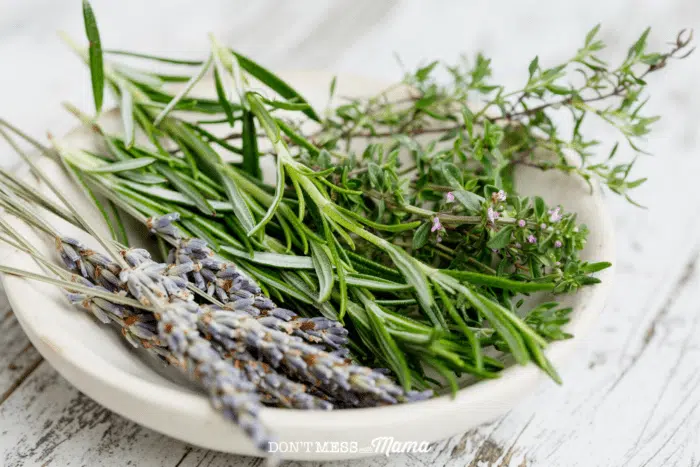
Hi. I love your remedies for pesky bugs… I was curious if you know of a natural remedy to ward off squirrels. A squirrel nested in the engine compartment of my vehicle, chewed one of my sensors, built itself a leaf-condo and made a mess of the liner of my hood lid. They are cute little guys…but not when the are doing costly and unsightly damage to my vehicle!! Help! Jill
There are a few things that squirrels hate: cinnamon, clove, thyme, garlic and chili peppers. I’d try that.
These were great tips!! I wish I had gotten this email prompt a couple of days ago son as to send then off with my daughter on her camping trip. Well, now we’ll be prepared for next time! Thank you, Tracy!